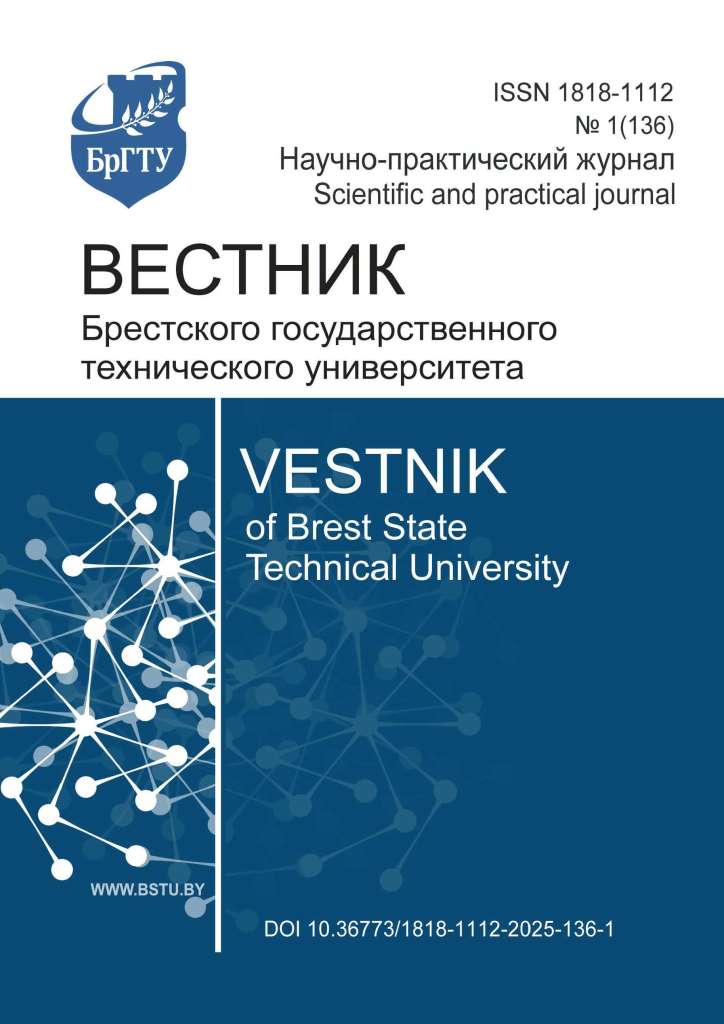THE ROLE OF UNIVERSITIES IN DIGITAL TRANSFORMATION: THE EXPERIENCE OF BELARUS AND KYRGYZSTAN
DOI:
https://doi.org/10.36773/1818-1112-2025-136-1-225-230Keywords:
digital transformation, universities, education, innovation, research activities, startups, cooperationAbstract
Digital transformation of the economy has become an integral part of modern business, requiring adaptability and readiness to change. This article examines the role of universities as key players in this process, emphasizing the main directions of universities' influence on digital transformation: training of qualified personnel, research activities, cooperation with business and support for startups. The aim of the research is to study the theoretical foundations of digitalization of the economy, the place of higher education institutions in the implementation of digital transformation processes, as well as to analyze the practical experience of universities' participation in the development of approaches and measures to accelerate and improve the efficiency of transformation processes. The achievement of the set goal implies the use of several research methods. The theoretical aspects of the topic under consideration are disclosed and generalized thanks to the analysis of literary sources of domestic and foreign authors. In the course of theoretical analysis the concepts of digital economy, digital culture, digital maturity are considered, the necessity of training highly qualified personnel to meet the challenges of the digital economy is outlined, an important function in this case is assigned to universities. The university is considered not only as a place for training personnel and obtaining competencies, but also as an intellectual center working on the principle of networking. It is revealed that not all higher education institutions have the necessary base for training specialists in relevant areas. In this regard, steps aimed at integrating digital technologies into educational processes and research activities to meet the need for highly qualified personnel for the digital economy are proposed. The practical side of the topic under study is presented by analyzing the work of specific higher education institutions (case study method).
References
Проблемные задачи цифровизации системы высшего образования Кыргызстана / Б. И. Бийбосунов, Ж. Т. Бексултанов, К. М. Юсупов, Ж. Жумалиева // Colloquium-journal. – 2020. – № 6 (58). – С. 126–129.
Брестский государственный технический университет : [сайт]. – URL: https://www.bstu.by (дата обращения 10.03.2025).
Валеева, Г. В. Роль и перспективы развития университета в современном цифровом обществе / Г. В. Валеева // Общество: философия, история, культура. – 2023. – № 3. – С. 56–60.
Вертакова, Ю. В. Роль университетов в процессах цифровой трансформации экономики / Ю. В. Вертакова // Экономика и управление. – 2018. – № 7 (153). – С. 54–64.
Гайнанов, Д. А. Приоритеты кадрового обеспечения цифровой экономики / Д. А. Гайнанов, А. Ю. Климентьев // Креативная экономика. – 2018. – № 12. – С. 1963–1976.
Государственная программа «Цифровое развитие Беларуси» на 2021–2025 годы // Министерство связи и информатизации Республики Беларусь. – URL: https://www.mpt.gov.by/ru/gosudarstvennaya-programma-cifrovoe-razvitie-belarusi-na-2021-2025-gody (дата обращения 10.03.2025).
Давыдова, Т. Е. Региональные университеты в цифровой экономике: уникальность или стандартизация? / Т. Е. Давыдова // Организатор производства. – 2018. – № 29 (1). – С. 90–105.
Европейская комиссия. План действий по цифровому образованию 2021–2027 // Европейское образовательное пространство. – URL: https://education.ec.europa.eu/focus-topics/digital-education/action-plan (дата обращения 10.03.2025).
Касперович, С. А. Формирование новой модели современного инженерного образования. Кейс Брестского государственного технического университета / С. А. Касперович, Н. С. Клишевич, Е. В. Шарапа // Вышэйшая школа. – 2024. – № 3. – С. 7–12.
Кенеева, Д. М. Цифровизация университета: новый взгляд на образование / Д. М. Кенеева, П. Эшенкулов // Известия НАН Кыргызской Республики. – 2024. – № 3. – С. 34–37.
Концепция цифровой трансформации Кыргызской Республики на 2024–2028 годы / Официальный сайт Президента Кыргызской Республики. – URL: https://president.kg/ru (дата обращения 10.03.2025).
Ламзи, Р. М. Прорывные цифровые технологии в системе государственного администрирования / Р. М. Ламзи // Национальные интересы: приоритеты и безопасность. – 2020. – Т. 16, № 1. – С. 4–16.
Марджинсон, С. Высшее образование и цифровая эпоха / С. Марджинсон // Исследования в области высшего образования. – 2015. – № 40 (7). – С. 1154–1169.
Мырзабаева, Н. М. Модернизация системы образования в условиях цифровой трансформации / Н. М. Мырзабаева // УНПК «Международный Университет Кыргызстана». – 2020.
Найт, С. Будущее университетов / С. Найт // Журнал политики и управления высшим образованием. – 2018. – № 40 (2). – С. 134–148.
Образование в цифровом мире: развитие навыков и компетенций, готовых к будущему // Организация экономического сотрудничества и развития. – URL: https://www.oecd.org/en/about/projects/future-of-education-and-skills-2030.html (дата обращения 10.03.2025).
Петрова, А. К. Цифровая трансформация: кадровые подсистемы управления инновационным развитием промышленных предприятий / А. К. Петрова, Н. В. Лашманова // Инновации. – 2019. – № 8. – С. 81–87.
Программа развития образования в Кыргызской Республике на 2021–2040 гг. // Юрист. – URL: https://online.zakon.kz/Document/?doc_id=35868724 (дата обращения 10.03.2025).
Раимкулова, А. С. Цифровизация в сфере образования Кыргызстана как аспект сотрудничества государств – членов ЕАЭС / А. С. Раимкулова // Вестник экономики, права и социологии. – 2022. – № 3. – С. 211–213.
Embracing digital technology: A new strategic imperative / М. Fitzgerald, N. Kruschwitz, D. Bonnet [et al.]. – MIT Sloan Management Review. – 2014. – Vol. 55, Iss. 2. – P. 1–12.
Downloads
Published
How to Cite
Issue
Section
License

This work is licensed under a Creative Commons Attribution-NonCommercial 4.0 International License.
The work is provided under the terms of Creative Commons public license Attribution-NonCommercial 4.0 International (CC BY-NC 4.0). This license allows an unlimited number of persons to reproduce and share the Licensed Material in all media and formats. Any use of the Licensed Material shall contain an identification of its Creator(s) and must be for non-commercial purposes only. Users may not prevent other individuals from taking any actions allowed by the license.










